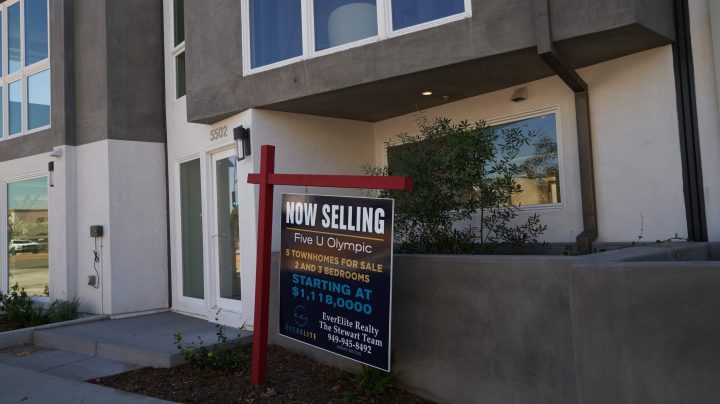
The Fed is easing up on interest rate hikes. Here’s how that could affect the economy.
The Fed is easing up on interest rate hikes. Here’s how that could affect the economy.

When the Federal Reserve raises interest rates, we tend to see mortgage rates go up too, along with rates on commercial loans, credit cards and plenty of other types of borrowing.
And when the Fed is in the middle of a series of rate hikes — like it has been this year — the expectation of the next hike and the one after that gets baked into economic decision making.
On Wednesday, the Fed raised its benchmark rate by 50 basis points, or half a percentage point. That follows four consecutive 75-basis-point increases in its effort to subdue inflation. But now that the central bank is reducing the size of its hikes, those expectations of future action need to change. And the rates on many loans could start to level off.
Even though the Fed just began to slow the pace, interest on certain types of loans has already been coming down. Mortgages, for example.
“Rates in the last 30 days have come down a little bit,” said Peter Alden, CEO of Bay State Savings Bank in Massachusetts.
He said mortgage demand has been weak, but the bank also believes the days of big rate hikes are behind us.
“We don’t see the dramatic increases that have happened in the prior two quarters,” said Alden. “It’s a little more stable.”
Lenders like to know what direction interest rates are headed in, said Winnie Cisar, global head of strategy at CreditSights.
Now, she said, the Fed’s plans are becoming a little clearer.
“That means you’re not going to see as much volatility in the credit markets, and just generally, better borrowing costs than we saw for a lot of the second half of this year,” Cisar said.
That includes lower corporate borrowing costs.
Cisar said big companies with good credit ratings have already been issuing debt at lower rates. And riskier companies with lower credit ratings could join them soon.
“Presumably if the Fed hikes rates at a slower pace, or ultimately pauses, and the economy remains intact, we should have a much more favorable environment for those lower-rated issuers,” she said.
A lot of businesses might pull the trigger on big projects if the Fed sticks to raising rates more slowly, said Jim Vogel, head of interest rate strategy at FHN Financial.
“That gives them more time to react,” he said. “That allows them to plan better and to move ahead with things that had been on the sidelines.”
On the other hand, Vogel said a lot of projects are on hold because businesses want to see whether the Fed’s rate hikes push the economy into a recession.
There’s a lot happening in the world. Through it all, Marketplace is here for you.
You rely on Marketplace to break down the world’s events and tell you how it affects you in a fact-based, approachable way. We rely on your financial support to keep making that possible.
Your donation today powers the independent journalism that you rely on. For just $5/month, you can help sustain Marketplace so we can keep reporting on the things that matter to you.

















